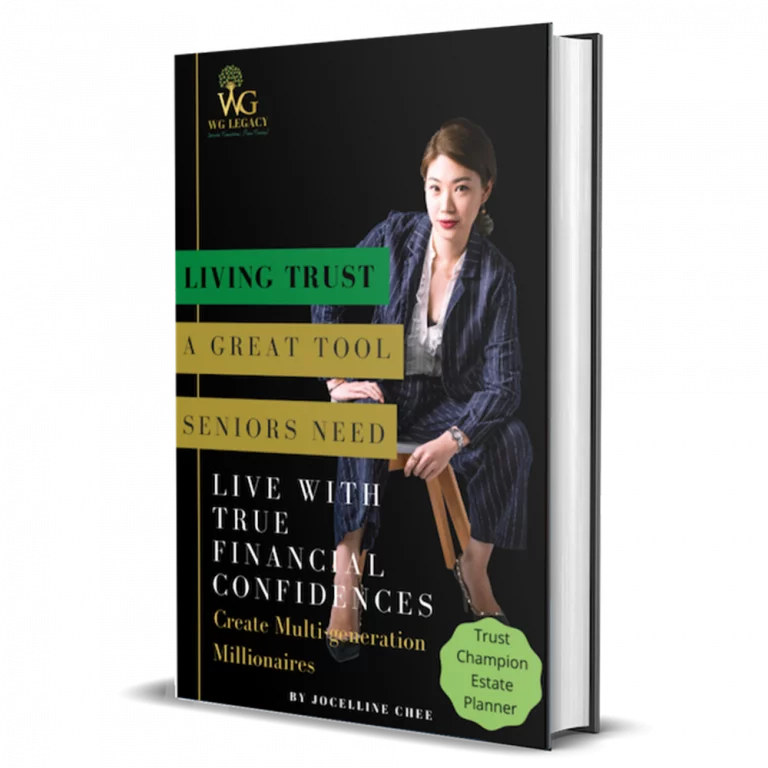Hi,
As I write, it is common for elderlies to place large portions of savings into Fixed Deposit accounts (FDs). This is because FDs are capital guaranteed, give interest and are covered by PIDM. Most stashed theirs aside as rainy day funds and they would uplift their FDs when they have bills and expenses to pay.
However, in line with the demand of professional wealth management services, cash placements into living trusts is becoming popular among the local wealthy. Thus, it behooves us to ask key questions, ‘Is living trust much better than FDs?’ and ‘Should I consider setting up my own living trust to manage excess cash?’.
Hence, I’ll pen down 3 key differences between FDs and living trusts so that you could make an informed decision on them. They are as follow:
Difference #1: By-Passing of Probate
Let’s say, we have Aaron and Nick. They have RM 100,000 in excess cash. Aaron put his RM 100,000 into FDs. Nick placed his RM 100,000 into his living trust.
One day, they went on a trip together, met with an accident, and passed on. So, the question is, ‘What will happen to their RM 100,000?’
Aaron:
His RM 100,000 in FDs will be frozen and form part of his estate. If Aaron wrote himself a will, the executor of his will shall apply the Grant of Probate (GP) from the High Court to unlock the RM 100,000. The executor would settle all Aaron’s outstanding tax and debts first before finally distributing the cash balance to his nominated beneficiaries in one-lump sum.
If Aaron passed on without a will, the process to unlock the RM 100,000 would be lengthier, because one or all of his beneficiaries would need to first apply for the Letter of Administration (LoA) to administer Aaron’s estates. Then, whoever is the administrator (or administrators) would need to settle all of Aaron’s taxes and debts owed, before distributing the cash balance to his lawful beneficiaries in accordance with the Distribution Act 1958.
Nick:
The RM 100,000 is not frozen as Nick has transferred the legal ownership of his cash to his living trust. Upon his passing, his trustee will continue to manage his RM 100,000 in accordance with the trust deed, which is a list of instructions on cash management and distribution given by Nick to his trustee. The instructions may include:
a. His nominated beneficiaries and substitute beneficiaries.
b. His preferred frequency of distribution (one-lump sum or in installments).
c. The purposes for distributing the money.
Hence, Reason #1 for putting excess cash into living trusts is to by-pass probate.
Difference #2: Fundings for the Physical or Mental Incapacitated
Once again, we have Aaron and Nick. Let’s say, instead of passing on, Aaron and Nick were hospitalized. After their accident, they both suffer from dementia. As such, the question is, ‘What will happen to their RM 100,000?’
Aaron:
Aaron’s RM 100,000 in FDs will still be intact. But, if he is the only person in the world, who has the username and password to his internet banking accounts, it is not possible for anyone, including himself, to get access to his RM 100,000, if Aaron forgets his username and password or worse, forgets that he himself had placed RM 100,000 in FDs before his accident.
Nick:
Let’s say, Nick forgets that he had put RM 100,000 into his living trust. But, that does not mean Nick could not benefit from it. Prior to his accident, Nick can set his trust deed in such a way, where he nominated himself to be a beneficiary of his living trust, and if he suffers from dementia at a later date, the trustee could make payment for Nick’s treatment or medical support out of his cash placed in his living trust. So, his RM 100,000 in living trust could act as a life saver to Nick himself in his time of need.
Hence, Reason #2 to form a living trust to provide himself a fund in the event of himself becoming physically and/or mentally incapacitated in the future.
Difference #3: Cash Returns and Capital Gains
This refers to the productivity of cash placed either in FDs or in living trusts:
Aaron:
His FD interest rates are determined by his preferred banks. Presently, the rates range between 1.5%-2.0% per year. So, Aaron could potentially earn RM 1,500 to RM 2,000 in interest income from his RM 100,000 in FDs.
Nick:
As the settlor of his own living trust, Nick can set a list of instructions, as to how his trust capital RM 100,000 is to be managed while he remains healthy and alive. Thus, the instructions to be set in his trust deed could vary depending on Nick’s capability and experiences as an investor.
For instance,
First, Nick may not have the intention to invest. Thus, he instructs his trustee to place all of his trust capital of RM 100,000 into either FDs or money market funds. As such, his living trust shall earn some interest or income distribution from these assets. But, due to trust administration fees, which range from 0.5% to 1.0% a year, the trust is likely not to produce much income for Nick.
Second, Nick could be a serial stock investor. Hence, in the trust deed, Nick may instruct his trustee to invest the trust capital of RM 100,000 into a portfolio of 5-10 stocks. In this case, Nick will earn dividends from the stock portfolio and the trust capital RM 100,000 would be subjected to market volatility. This means, he could have capital gains and as well as capital losses from the stock portfolio.
Third, Nick may entrust his trustee to invest his trust capital of RM 100,000 on behalf of him into a list of authorised investments for a projected annual return of 6%. As such, Nick’s trustee is allowed to decide on the type of investments as stated in NIck’s trust deed. Thus, this would enable Nick to earn income from the trust to fund his lifestyle while he is healthy and alive.
Thus, the onus is on the settlor to decide how the money placed in a living trust is to be managed to determine its returns from the trust asset.
Conclusion: Is Living Trust Much Better than FDs?
The answer is nope.
FDs are great places to stash away our rainy day funds. We would uplift our FDs when we need money to pay bills. However, if we place all cash into a living trust, it is best to set a time frame and not to touch them during the trust period. This is because it will be disturbed the purpose and objective you plan to meet your estate planning goal.
So, how can I get started in setting up my own living trust?
If you wish to do so, you may book yourself a 30-minute consultation session to find out how you could set up your own living trust. To do so, please fill up your details below:




